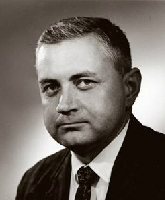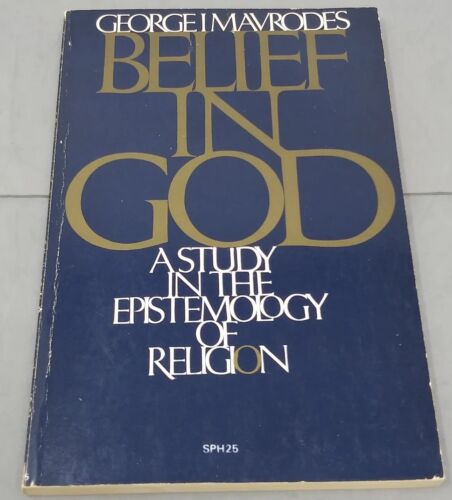Some while ago I read a ‘classic’ of George Mavrodes: Belief in God (1970). In this book he is concerned with epistemological questions with regard to God’s existence. An passage in the beginning of the book attracted my attention. It’s the paragraph about the question ‘How Do You Know?’. That however appears to be an ambiguous question. He illustrates that statement with two examples (p.6,7):
Imagine a girl who has gone to considerable trouble to keep her engagement a secret from everyone except her family and that of her fiancé. She then is disconcerted when a casual acquaintance mentions it. In her surprise she may blurt out “But how do you know?”
Imagine now a second case. A firmly convinced atheist listens patiently as a Christian expresses his faith. Then the atheist replies, “You say there is a God an that he loves you. How do you know?”
Although the same expression (How do you know?) is used, nonetheless different questions have been asked, says Mavrodes. “The most important difference between these two questions is that they are asked against quite different backgrounds with respect to the propositions that is claimed to be known” (p.7). In order to articulate this difference more fully, Mavrodes makes a distinction by calling the first question ‘biographical’ and the second ‘a challenge’.
The first question is called biographical because the ‘you’ in it is to be understood in the personal sense. The question is really about the knowledge of this particular friend, so her reply has to be autobiographical. It’s not the moment to talk about general principles as to how people usually get to know things like this. A second feature of this kind of question is that does not concern the truth of the proposition to which it refers. There is no disagreement about that: the lady has been engaged.
The second type of question (that of the atheist) he calls a ‘challenge’. It might even be argued that it’s not a genuine question at all. In contrast with the biographical question, the personal element in a challenge is lacking or at least not really significant. The possible replacement of ‘you’ by ‘one’ is a good indicator for that. The question is not especially about this particular Christian. “The challenge is issued to him, but it is not about him” (p.8). There is however another difference. “Responses to a challenge may be evaluated in terms of their truth or falsity. But it is also important to evaluate these responses in terms of their effectiveness or success” (p.9). The challenge, in contrast with the biographical question, poses a task. That point suggests another contrast, according to Mavrodes. A relevant response to a biographical question will include saying (or writing) something, a piece of information. “For challenges however”, says Mavrodes, “it’s by no means clear that the most relevant or even the most standard response must be in words. In general we can notice that nonverbal means are often the most effective and the most appropriate for convincing a person of the truth of some proposition” (p.9).
So far for the discussion in Mavrodes’ book. I can tell you that I read it with a considerable amount of surprise. Let me explain. This book was published in 1970, that is to say: definitely long before anything like ‘Postmodernism’ was in the air. One of the influences of postmodernism in recent theology is the emphasis of ‘relevance’, at the cost of ‘truth’ (Alister McGrath for example). My surprise therefore was a double one. In the first place that the emphasis on relevance was already there, in Mavrodes’ book so many years before the talk of Postmodernism. But even more important to me was this: for Mavrodes ‘relevance’ and ‘truth’ are no enemies, but go side by side. That is, according to me, an important insight, worth keeping in mind. The church has to be concerned with the relevance of the message of the Gospel, but also with the truth of it, by explaining and defending it in the best possible way.


